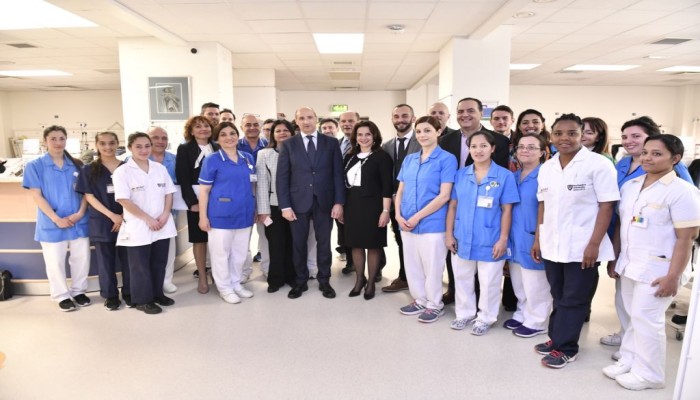
Malta’s Growing Dependence on Third-Country Nationals: The Need for Workforce Reforms
Nazmul Istiak , Published: March 25, 2025, 12:03 pm

Malta’s Growing Dependence on Third-Country Nationals: The Need for Workforce Reforms
Valletta, Malta – Malta's booming economy, particularly in the hospitality, tourism, and healthcare sectors, faces a significant challenge—labor shortages. To sustain business operations and maintain service quality, employers are increasingly relying on third-country nationals (TCNs) to fill critical workforce gaps. However, stringent visa policies and bureaucratic hurdles make it difficult for these essential workers to enter and work in the country efficiently.
Why Employers in Malta Need Third-Country Nationals
Malta’s hospitality and tourism industries are the backbone of its economy, contributing significantly to GDP and employment. The country attracts millions of visitors annually, requiring a large workforce to support hotels, restaurants, and entertainment facilities. However, due to an aging local population and reluctance among Maltese citizens to take up certain job roles, businesses struggle to find enough workers.
Similarly, the healthcare sector faces an increasing demand for skilled professionals, including nurses, caregivers, and support staff. With a growing elderly population and expanding healthcare facilities, local recruitment alone is insufficient to meet industry demands. Third-country nationals provide a vital solution, offering skills, experience, and the willingness to work in demanding conditions where local labor is scarce.
Challenges in Hiring Third-Country Nationals
Despite the necessity of hiring TCNs, Malta’s strict visa regulations and complex work permit processes present significant obstacles. Employers and foreign workers alike face challenges such as:
Lengthy Visa Processing Times – Obtaining a work visa can take months, delaying businesses from filling urgent job vacancies.
Complex Documentation Requirements – Employers must navigate a complicated system of paperwork, adding administrative burdens.
Quota and Sponsorship Restrictions – Companies often face limitations on how many foreign workers they can employ, despite labor shortages.
High Application Rejection Rates – Many applications are rejected due to minor errors or changing immigration policies, leading to uncertainty for both businesses and workers.
Limited Support for New Arrivals – Once in Malta, many TCNs struggle with accommodation, work integration, and legal uncertainties.
Government Reforms Needed to Improve TCN Employment
To address these challenges and ensure business continuity, the Maltese government should consider the following reforms:
Streamlining the Visa Process – Reducing unnecessary bureaucracy and expediting processing times for work permits will help businesses hire faster.
Easing Visa Restrictions for Key Sectors – The government should identify sectors like hospitality, tourism, and healthcare as priority areas and implement a fast-track visa process.
Introducing a Skilled Worker Program – A specialized work permit system for experienced professionals can encourage skilled workers to move to Malta.
Enhancing Employer Support – Providing a centralized system to assist businesses in hiring and managing foreign workers efficiently.
Improving Worker Integration – Creating better housing, language training, and cultural adaptation programs for TCNs to help them settle and contribute effectively.
Malta’s reliance on third-country nationals is no longer a choice but a necessity. With labor shortages affecting key industries, the government must take proactive measures to make the employment process smoother for both businesses and workers. By improving visa regulations and streamlining bureaucratic procedures, Malta can remain competitive, ensure sustainable economic growth, and maintain high service standards across crucial sectors.